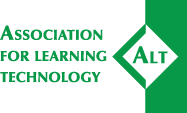Roberts, George (2009) Lives in transition through community it: Biographical narratives from the IT "hub" on a large estate with multiple deprivation indices. In: BERA Conference, 02-05 September 2009, Manchester, UK. (Unpublished)
|
Microsoft Word
- Draft Version
Available under License Creative Commons Attribution Non-commercial No Derivatives. Download (250kB) |
Abstract
Little is really known about the experiences of people who use community IT centres, nor how community IT centres really impact on social inclusion. A wide review reveals that voices of these learners are largely absent from the research literature. In policy statements and evaluation reports learner voices are often synthesised from analyses of the experiences of centre managers and selectively presented for rhetorical purposes. However, one place where vernacular IT literacy practices involving digital and new technology are developed, exercised and valued, and where they benefit from, and contribute to, the development of social capital (McClenaghan 2000: 566) is the community IT centre. This paper addresses the question: what is the lived experience of these people who use this urban community IT centre, co-located in a city council property with other agencies, on a large housing estate where there are multiple indices of exclusion. The paper reports the first findings of a detailed, qualitative study using an innovative methodology and analytical framework enabling close analysis from multiple perspectives. Narrative expression is closest to people’s lived experience of conscious concerns and also less conscious cultural processes (Chamberlayne, Bornat, et al. 2004). Mathie and Cunningham (2003) explicitly link Appreciative Inquiry and Biographical narrative methods in a model of Asset-based community development (ABCD). Eleven extensive biographic-narrative interpretive interviews and two Appreciative inquiry focus groups were conducted. The life stories and focus groups were analysed using “third generation Activity theory”. Engeström (2001: 133) identifies three generations in the evolution of activity theory. The first generation characterised by mediation, the second by community. Now, “The third generation of activity theory needs to develop conceptual tools to understand dialogue, multiple perspectives, and networks of interacting activity systems.” In this respect, the third space theories of Homi Bhabha (2004) are particularly productive in advancing activity theory for community development education. Third generation activity theory takes as its minimum unit of analysis the intersecting space – the third space – between (any) two or more activity systems, say community development learning on the one hand and employer-led demand-driven funding models on the other. A community IT centre is a cultural-historical activity system: mediated, multi-voiced, enduring, conflicted and transformative. It is the highly contextualised culture of the “site of engagement” (Scollon 2001) where formal and informal work and learning opportunities co-exist, that is the salient feature of a community IT centre. The narratives suggest six mediating rule sets: affect, family, community, education, employment, and IT practice. Affective factors include, e.g. defeat, happiness, love, pride. Family embraces participants’ home-life, children and child-care, cohabitants, family members, personal finance, and partner(s). Community incorporates formal and informal structures and activities such as community organisations, volunteering, and also crime, drugs, prison, familarity and strangers. Education, interestingly, appears as strongly linked to learning as to formal qualifications. Employment is often unrelated to accreditation, more often related to informal learning or networks; people occasionally achieve identity-affirming employment but often work to survive. IT practices are widely and deeply embedded, ranging from using email and attachments through digital image, music and video editing; there is high awareness, and moderate use, of social networking sites. These rule-sets are worked through complex personal histories, where values and identities illuminate a third space. People make meaning and find reward through social interaction mediated by the presence and use of community computing facilities for educational and non educational purposes. But, community and policy are awkwardly articulated. Correlation between education, IT centres, and employment is unclear. Conceiving of IT as primarily for education and employment fails to value other equally important computer-mediated personal/ social/ civic interaction. Education may have replaced industrial policy as the means to improve the economy (Esland 1996), and the Internet is a fundamental aspect of citizenship, but benefits are obscured by a narrow focus on work-force attachment (Levitas, 1999), learning targets and productivity (Coffield, 2006). The problem facing the modern world may not be work-force attachment but that, “… community is missing” (Ellis and Scott 2003: 262). Where vernacular IT practices are valued and developed, they may contribute to the development of social capital. Traumatic experiences of school lead to reluctance to engage with learning impacting adversely on civic participation. This paper offers a suggestion that community IT centres might be decoupled from educational policy and funding. Target-driven models are counter-productive. Adopting assisted voluntarism, social enterprise and participatory governance within a local framework of socially-owned facilities and multi-agency co-operation might help reconnect lived experience with meaningful, community-based social capital development leading to increased, beneficial civic participation.
| Item Type: | Conference or Workshop Item (Paper) |
|---|---|
| Uncontrolled Keywords: | PCDL community development ICT UKonline biographical narrative BNIM |
| Subjects: | L Education > LC Special aspects of education > LC5201 Education extension. Adult education. Continuing education H Social Sciences > HN Social history and conditions. Social problems. Social reform L Education > LC Special aspects of education > LC1022 - 1022.25 Computer-assisted Education |
| Divisions: | CMALT - Certified Membership of ALT Scheme |
| Depositing User: | Maria Hedberg |
| Date Deposited: | 24 Sep 2009 13:04 |
| Last Modified: | 04 Apr 2011 08:52 |
| URI: | http://repository.alt.ac.uk/id/eprint/655 |
Actions (login required)
 |
View Item |
